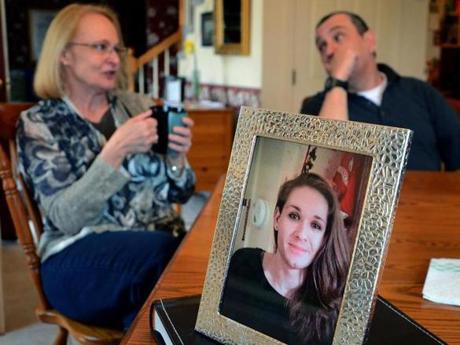The Requiem and Evolution of a Dream: How Parents' Handle Their Own Expectations of Their LBGT and Transgender Children

She's My Only Little Girl
About two months ago I was doing late night shopping at Walmart. While I was there, by chance I ran into an old friend of mine from a church I used to attend some years ago. Shannon had been one of the few friends I had there and I had also instructed her kids for a time in martial arts. So as we caught up with events, I asked her how they were.
She said her son was fine but that things had changed drastically with her daughter. As it turned out, she had apparently decided to undergo a sex change because she felt that she was more of a man than a woman. Taken by surprise, I asked Shannon how she coped with that. I could recall no hint of that when I saw her last.
She replied that the toughest part of it was that she felt like she was letting go of her only daughter, even though she wasn’t. It was the idea though, something that was important to her since her birth. Despite that though, she was dealing with it as best she could.
Shannon’s story reminded me of my mother’s when she found out my older brother was gay. This was back in the eighties where there was still a lot of taboo surrounding it, and the AIDS virus was an automatic death sentence for those who had it, which my brother did. My mom couldn’t cope with it at the time, or just decided not to mention it to the rest of us until my brother was diagnosed with AIDS and moved up to Rochester with the family.
Wishing on a Star
There is an experience that takes place with parents of children who have undergone drastic changes, whether they are tragic, rooted in ideology, or sexual identity. In counseling class, they termed the “death of a dream”. Pretty grim title for something many would not deem that vital. What it basically meant was that when a parent has children, normally they develop automatic expectations of how their kid will turn out. And of course, it’s always their version of idealistic. Maybe they foresee them becoming successful doctors and lawyers. Maybe they see them having families of their own and the parents themselves becoming grandparents. Or maybe they seem them as becoming strong and independent, or replicas of their own values.
Whatever the case, if the child goes a different direction, a drastic different direction, the change can be jarring. Now I am not trying to compare a person’s sexuality to death, or judge it on some moral presumption.
I am pointing out a detail of the human experience that is becoming more common place with increasing acceptance of LGBT people and others changing their genders. That experience being that those expectations that they originally hoped for their kids suddenly disappear and the parents are left with a glaring new reality they may have never foreseen.
Many parents have difficulty moving past this for a variety of reasons. Maybe they wanted their kids to be something they weren’t or shave something they didn’t. Maybe they were trying to live their fantasies of what they did or wished they could’ve done through the kids. Perhaps their cultural or religious background never prepared them for something like that happening to them. Or maybe they just simply loved them.

Dealing with the Changing Dream and the Reality
The tonal shift can affect how the relationship between them. Going back to my two examples, my mother went into denial about for years and never talked about it until years later before gaining some peace. While Shannon, for the love of her child chose to struggle with the change in her expectations, her relationship with her child, and how that affected her beliefs as she is a religious person.
For parents coming from a religious background especially, I have seen this as being very hard to deal with as they can become torn between the love of their children, and their spiritual values they believe to be immutable. Things like your son wants who wear dresses or your daughter likes kissing other girls, only happens to ‘other’ people. Not them.
My friend Seth, who is gay, had told me that he never told his own father about his sexuality because he felt he would not have been able to handle it. Gretchen, a lesbian whom I was hitting on anyway back in college because I thought she was hot, had said that her experience included people coming to the door of her family’s house telling her she was going to go to hell, and her family was already having issues with her coming out.
The death of a parent’s dream for their children maybe more of a social construct rather than a natural occurrence, given the history of social development, but its still very real. And while it is easy to take a moral high ground, by either side, and somehow guilt trip the other party into accepting what the other wants, both parents and kids have to walk through that together for the relationship to come out healthy on the other side.
The Problem of Human Feelings
Simply telling parents to be supportive doesn’t deal with their own possible feelings of grief. Again, that’s not casting a bad light on positive support, but dealing with the undercurrent feelings that can and do sabotage that. Symptoms of this have been described as isolation within the family of that child from activities, accusing them that their problems are of their own making, and encouraging the child to hide who they are or their feelings from others to save familial face.
All of these and more are just branches and twigs when you need to be dealing with the tree that is sprouting them. As much as shaming the child would be wrong, so is shaming the parent for having that expectation, at least initially. It’s human and we all do it. When taken in another context, we may have hopes our kids don’t become racists, rapists, murders, or even joining political and religious parties that don’t support the ideals we tried to imbue in them. If they become those things we despise anyway, we would feel the same way, even though we would hopefully still love them.
It’s natural: its feelings and feelings are uncontrollable when it comes to why they’re there. We control what we do with them however and either side casting stones or running away from it solves nothing and some handle it easier than others.
So for the future, parents must learn that it’s ok to have dreams about their kids’ futures, but also be prepared if it doesn’t turn out that way either: for them to learn how to process the new reality while still maintaining their relationship. One of the worst things to witness is someone who is rejected by their family because one or both sides could not talk about the situation, or accepts that who their children turned out to be, no matter how successful, wasn’t what they wanted them to be.





